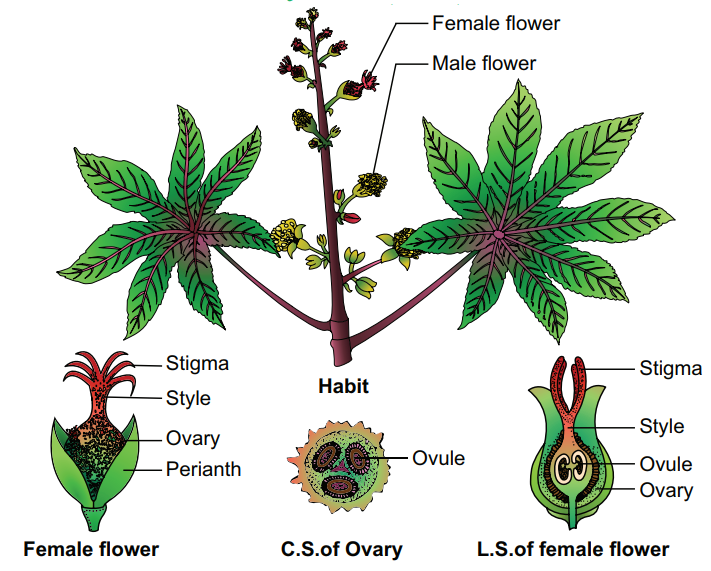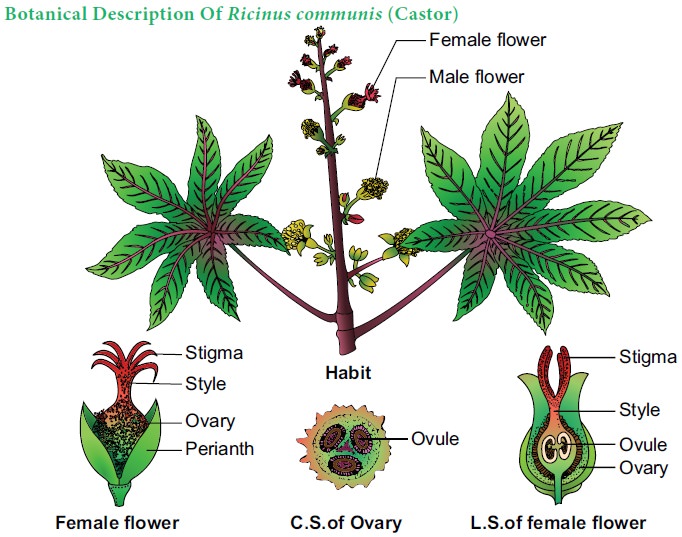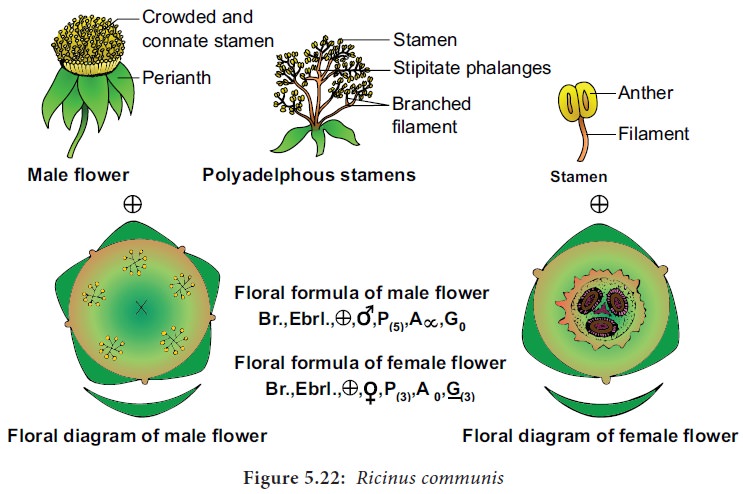Chapter: 11th Botany : Chapter 5 : Taxonomy and Systematic Botany
Botanical Description Of Ricinus communis (Castor)

Botanical Description Of Ricinus
communis (Castor)
Habit: Tall perennial shrub
Root: Branched
tap root system
Stem: Aerial,
erect, cylindrical, branched and hollow,
solid at the base, glabrous,
Leaf: Simple,
petiolate, hollow, exstipulate, alternate,
broad, palmately lobed, usually 7-9 lobes, serrate, palmately reticulate
divergent venation.
Inflorescence:
Terminal panicle.
Male
Flower Bracteate, ebracteolate, pedicellate,
male flowers (open for one day) towards lower portion of the inflorescence,
actinomorphic, incomplete.


Perianth:
Tepals 5,
apophyllous, uniseriate, green,
valvate aestivation, odd tepal posterior in position.
Androecium:
Stamens
numerous (upto 1000) crowded and
connate into about 8mm long cluster of stipitate phalanges, each stamen
profusely branded, anthers globose basifixed.
Gynocium:
usually
absent rarely represented by
pistillode.
Female
Flower Bracteate, ebracteolate, pedicellate, female flowers (open for fourteen
days) found towards the apical portion of inflorescence, actinomorphic,
incomplete and hypogynous.
Perianth:
Tepals 3,
apophyllous, green valvate.
Androecium: Absent
but staminode is present.
Gynoecium:
Tricarpellary, syncarpous, ovary
superior, distinctly trilobed, trilocular, covered with spiny outgrowth, single
large ovule in each locule on axile placentation, style three with three bifid
stigma.
Fruit: A
schizocarp with spiny outgrowth,
splits into three one seeded cocci.
Seed: Endospermous,
knob-like caruncle develops from the
micorpyle, that absorbs and temporarily retains water enabling germination.
Floral
Formula:

Related Topics